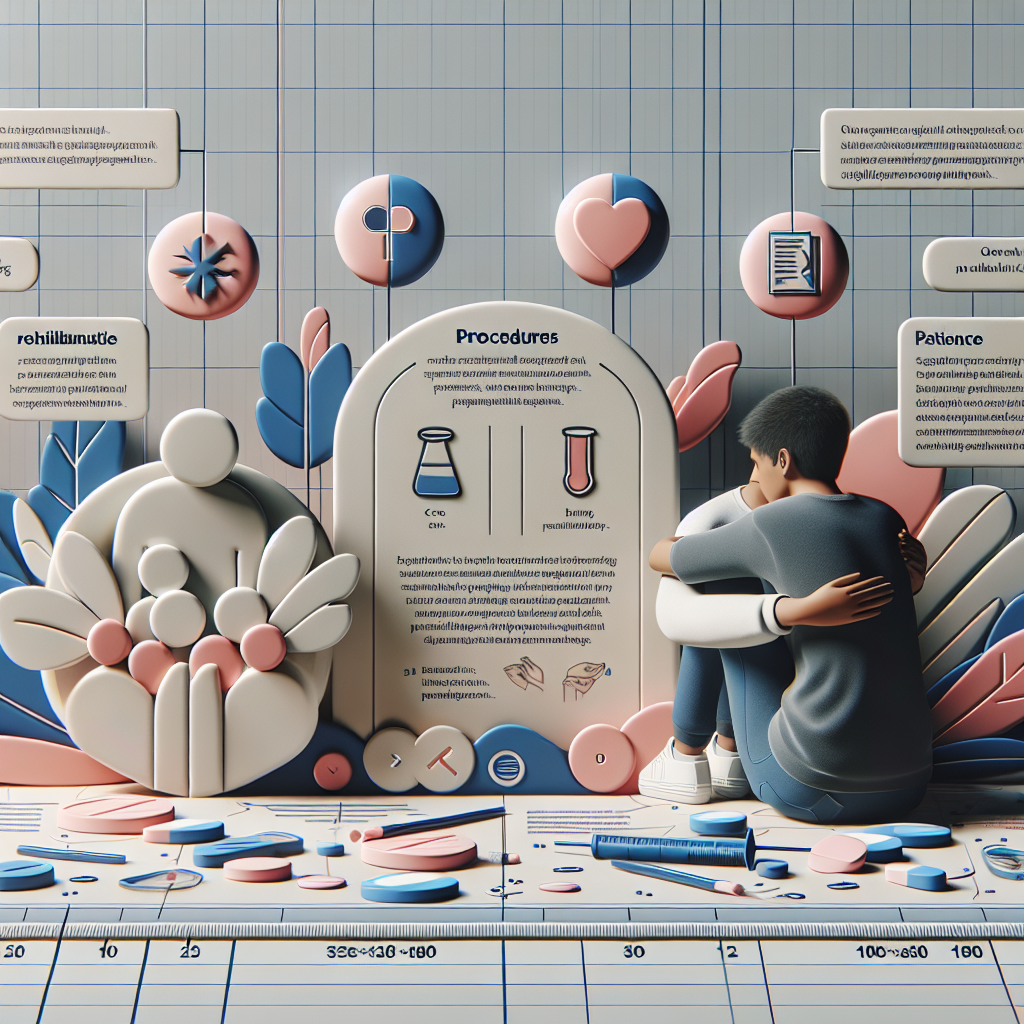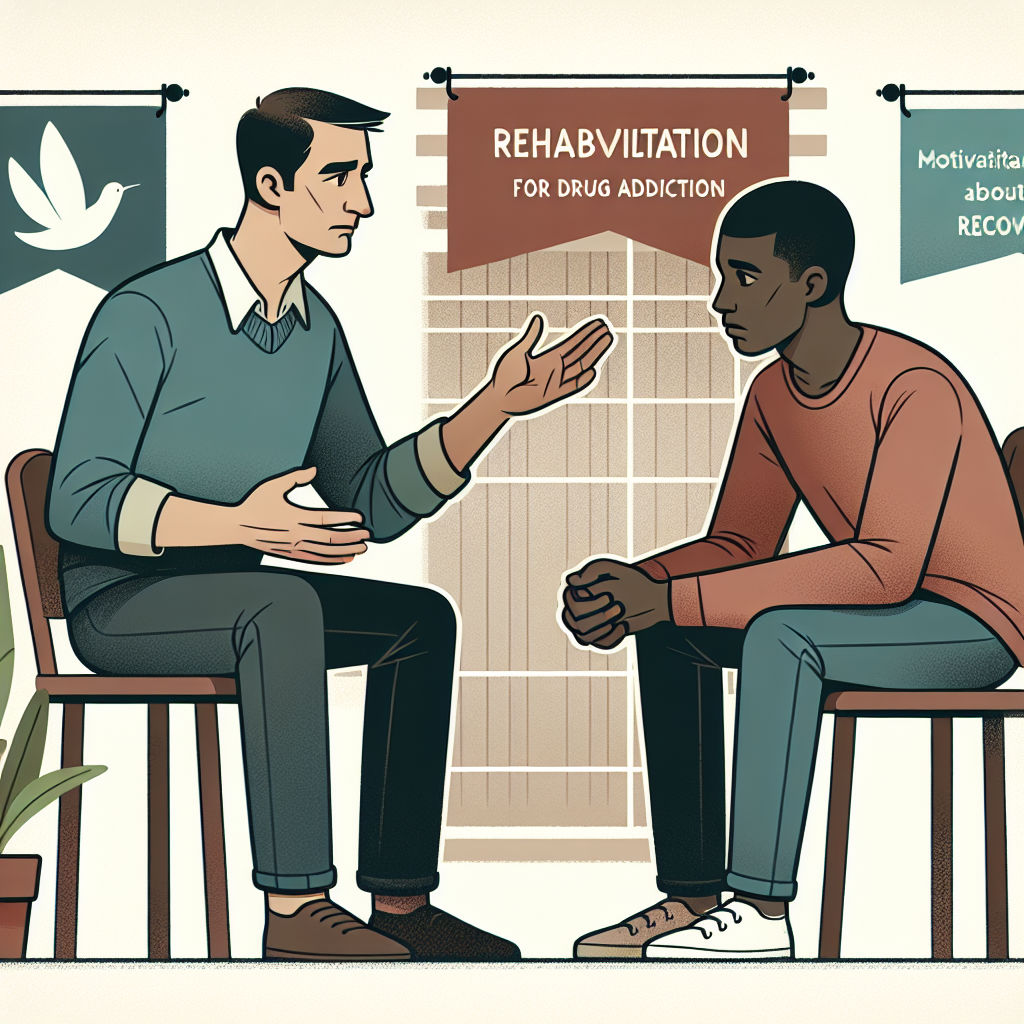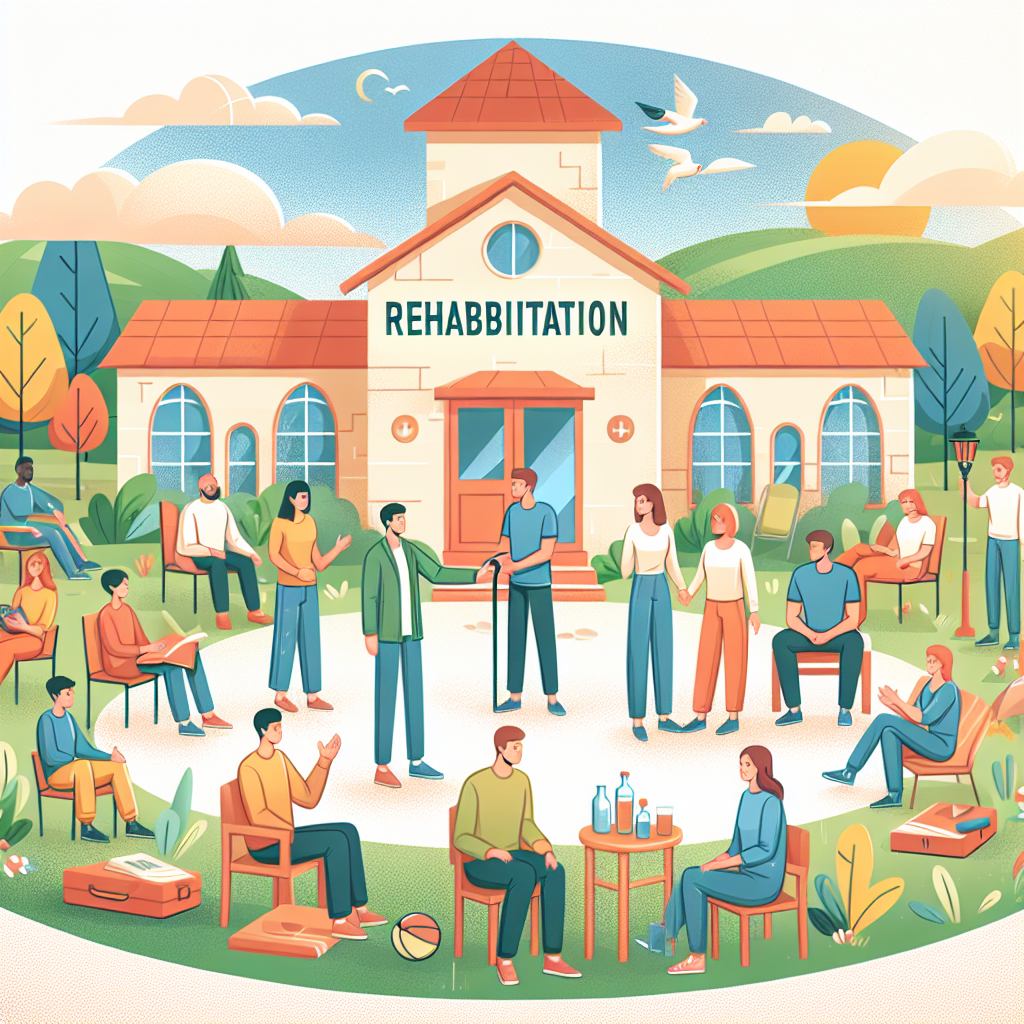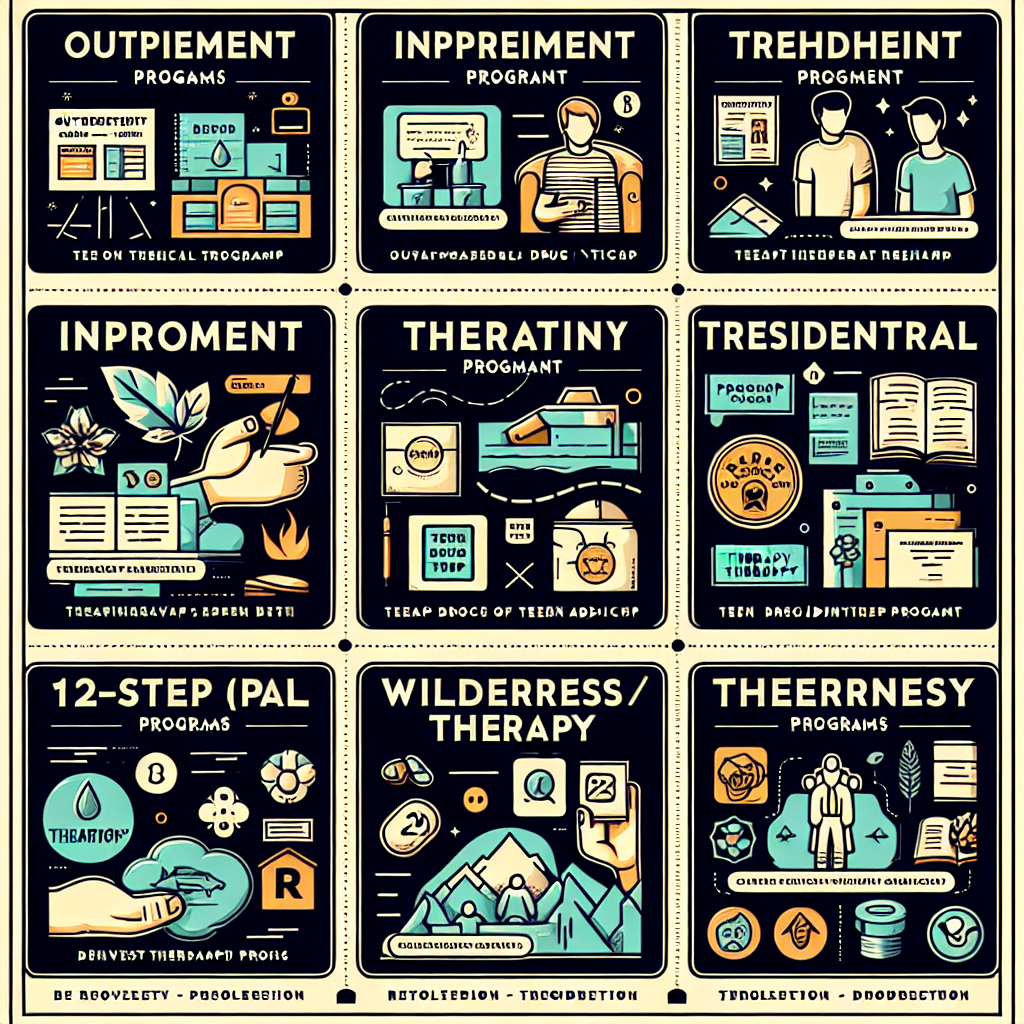-
Table of Contents

“Empower, Encourage, Embrace: Guiding Teens to Recovery”
Introduction
Supporting a teen in rehab for drug addiction requires a multifaceted approach that combines emotional, practical, and professional support. Understanding the complexities of addiction and the rehabilitation process is crucial for providing effective assistance. This introduction will explore key strategies for supporting a teen through their journey to recovery, including fostering open communication, creating a stable and supportive home environment, engaging with professional treatment programs, and encouraging healthy lifestyle changes. By adopting a compassionate and informed approach, caregivers and loved ones can play a pivotal role in helping a teen navigate the challenges of rehab and build a foundation for long-term sobriety and well-being.
Effective Communication Strategies to Support a Teen in Rehab for Drug Addiction
Supporting a teen in rehab for drug addiction can be a challenging yet profoundly rewarding experience. Effective communication is crucial in this journey, as it fosters trust, understanding, and a sense of security. To begin with, it is essential to approach conversations with empathy and patience. Teens in rehab are often grappling with a myriad of emotions, including guilt, shame, and fear. By listening actively and without judgment, you create a safe space for them to express their feelings and thoughts. This can significantly enhance their willingness to open up and share their experiences.
Moreover, it is important to use positive reinforcement to encourage progress. Acknowledging even the smallest achievements can boost a teen’s self-esteem and motivate them to continue their recovery journey. Phrases like “I’m proud of you” or “You’re doing great” can have a profound impact. However, it is equally important to be honest and transparent. Teens are perceptive and can often sense when someone is not being genuine. By being truthful, you build a foundation of trust that is essential for effective communication.
In addition to verbal communication, non-verbal cues play a significant role. Maintaining eye contact, nodding in agreement, and using open body language can convey your support and understanding. These non-verbal signals can often speak louder than words, reassuring the teen that you are fully present and engaged in the conversation.
Setting boundaries is another critical aspect of effective communication. While it is important to be supportive, it is equally important to establish clear and consistent boundaries. This helps the teen understand the consequences of their actions and the importance of accountability. It also provides a structured environment that can be incredibly beneficial during the recovery process.
Furthermore, educating yourself about addiction and the rehabilitation process can enhance your ability to communicate effectively. Understanding the challenges and complexities of addiction can help you empathize with the teen’s struggles and provide more informed support. This knowledge can also help you identify potential triggers and warning signs, enabling you to intervene early if necessary.
Encouraging open and honest dialogue is also vital. Create an environment where the teen feels comfortable discussing their thoughts and feelings without fear of judgment or repercussions. This can be achieved by asking open-ended questions and actively listening to their responses. For instance, instead of asking “Did you have a good day?” you might ask “What was the most challenging part of your day?” This invites a more detailed and meaningful conversation.
Additionally, involving the teen in decision-making processes can empower them and give them a sense of control over their recovery. Whether it’s choosing a new hobby, setting personal goals, or deciding on a family activity, involving them in these decisions can boost their confidence and reinforce their commitment to recovery.
Lastly, it is important to practice self-care. Supporting a teen in rehab can be emotionally draining, and it is essential to take care of your own mental and emotional well-being. By maintaining your own health, you are better equipped to provide the support and encouragement the teen needs.
In conclusion, effective communication is a cornerstone of supporting a teen in rehab for drug addiction. By approaching conversations with empathy, using positive reinforcement, setting boundaries, educating yourself, encouraging open dialogue, involving the teen in decision-making, and practicing self-care, you can create a supportive and nurturing environment that fosters recovery and growth. This journey may be challenging, but with patience, understanding, and effective communication, it is possible to make a meaningful difference in the teen’s life.
Creating a Supportive Home Environment for a Teen Recovering from Drug Addiction
Creating a supportive home environment for a teen recovering from drug addiction is crucial for their successful rehabilitation and long-term recovery. The journey to sobriety is often fraught with challenges, and the role of family and close friends cannot be overstated. By fostering a nurturing and understanding atmosphere, you can significantly contribute to your teen’s healing process and help them build a foundation for a healthier future.
First and foremost, open communication is essential. Encourage your teen to express their feelings and thoughts without fear of judgment. This can be achieved by actively listening and showing empathy. When your teen feels heard and understood, they are more likely to share their struggles and triumphs, which can be incredibly therapeutic. Additionally, maintaining an open dialogue helps to build trust, which is a cornerstone of any supportive relationship.
Another important aspect is setting clear and consistent boundaries. While it is important to be compassionate, it is equally vital to establish rules and expectations that promote a safe and structured environment. This includes setting curfews, monitoring social activities, and ensuring that your teen adheres to their treatment plan. Consistency in enforcing these boundaries helps to create a sense of stability, which is often lacking in the lives of those struggling with addiction.
Moreover, educating yourself about addiction and recovery can make a significant difference. Understanding the complexities of addiction, the triggers that may lead to relapse, and the various stages of recovery can help you provide more effective support. There are numerous resources available, including books, online articles, and support groups for families of individuals in recovery. By becoming well-informed, you can better empathize with your teen’s experiences and offer more meaningful assistance.
In addition to education, it is beneficial to create a drug-free environment at home. Remove any substances that could potentially trigger a relapse and encourage healthy, alternative activities. This might include engaging in family outings, pursuing hobbies, or participating in physical exercise. By promoting a lifestyle that is free from drugs and alcohol, you are helping your teen to develop new, positive habits that can replace the old, destructive ones.
Furthermore, it is important to recognize and celebrate your teen’s progress, no matter how small. Recovery is a long and arduous process, and acknowledging milestones can provide much-needed motivation and encouragement. Whether it is a week of sobriety or a successful therapy session, celebrating these achievements reinforces the positive changes your teen is making and boosts their confidence.
Additionally, seeking professional support for yourself and other family members can be incredibly beneficial. The impact of a teen’s addiction on the family unit can be profound, and addressing these issues through family therapy or support groups can help to heal and strengthen relationships. By taking care of your own emotional well-being, you are better equipped to support your teen through their recovery journey.
Lastly, patience and perseverance are key. Recovery is not a linear process, and setbacks are common. It is important to remain patient and continue to offer unwavering support, even in the face of challenges. Your consistent presence and encouragement can make a world of difference in your teen’s ability to overcome addiction and build a brighter future.
In conclusion, creating a supportive home environment for a teen recovering from drug addiction involves open communication, setting boundaries, educating yourself, fostering a drug-free lifestyle, celebrating progress, seeking professional support, and practicing patience. By embracing these principles, you can play a pivotal role in your teen’s recovery and help them to achieve lasting sobriety.
Q&A
1. **Question:** What are some ways to emotionally support a teen in rehab for drug addiction?
**Answer:** Offer consistent encouragement, actively listen to their concerns, and express unconditional love and support.
2. **Question:** How can family members help a teen maintain progress after rehab?
**Answer:** Establish a stable and supportive home environment, encourage participation in aftercare programs, and help them avoid triggers and high-risk situations.
Conclusion
Supporting a teen in rehab for drug addiction involves several key steps: maintaining open and non-judgmental communication, providing emotional support, participating in family therapy sessions, educating oneself about addiction, setting clear boundaries, encouraging healthy habits, and ensuring a supportive home environment post-rehab. By actively engaging in these practices, caregivers can significantly contribute to the teen’s recovery journey and long-term sobriety.



